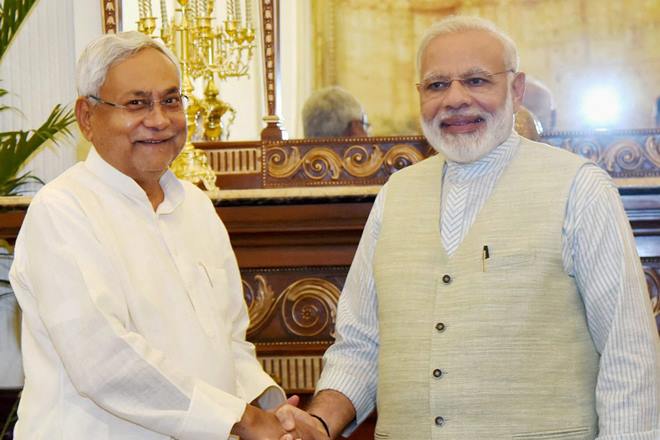Lok Sabha Elections 2019: In a major political development, Nitish Kumar-led JD(U) has decided to continue its alliance with the BJP. The decision comes after the party held its National Executive Meeting in New Delhi on Sunday. The decision is seen as a major boost for the BJP ahead of the crucial 2019 Lok Sabha polls.
On Saturday, it was clear that the alliance with the BJP would continue. A local media report in Patna said that Kumar held a meeting on Saturday in Patna and made it clear that the alliance would remain. The development today rests all the speculation about JD(U) exploring possibilities to an alliance with the RJD.
The meeting reportedly discussed issues related to seat sharing for the next year’s general elections. The party also discussed assembly elections of Bihar, which are scheduled for 2020. The report said JD(U) will contest on 17 Lok Sabha seats. The rest seats would go to other NDA partners, including the BJP. Reportedly, BJP-JD(U) will contest on 17 seats each, while rest seats will be contested by other partners like LJP.
This comes amid reports of differences within the alliance ahead of the elections. Opposition parties, led by RJD have attacked the JD(U) over the issue of alliance.
Recently, Congress MLAs in Bihar– Sudarshan Kumar and Tauseef Alam– had said that Nitish Kumar was the zaroorat (need) of the Grand Alliance, which stands truncated upon the exit of the JD(U). Sudarshan also remarked Kumar is the only acceptable Chief Ministerial candidate in Bihar and that if the Grand Alliance is serious about posing a challenge to BJP, it must think over the issue, news agency PTI reported.
Nitish Kumar left the ‘Mahagathbandhan’ to join hands with the old ally BJP, annoying the RJD and the Congress as both parties attacked Kumar for being opportunistic.
BJP president Amit Shah will visit Patna on July 12. He will meet Nitish Kumar to discuss crucial political issues. Bihar sends 40 Lok Sabha members to the Parliament. This underscores the significance of the state in national politics.
In the 2014 Lok Sabha elections, the BJP had won 22 of the 40 seats and its allies, LJP and RLSP had six and three respectively. The JD(U) had won only two seats.

